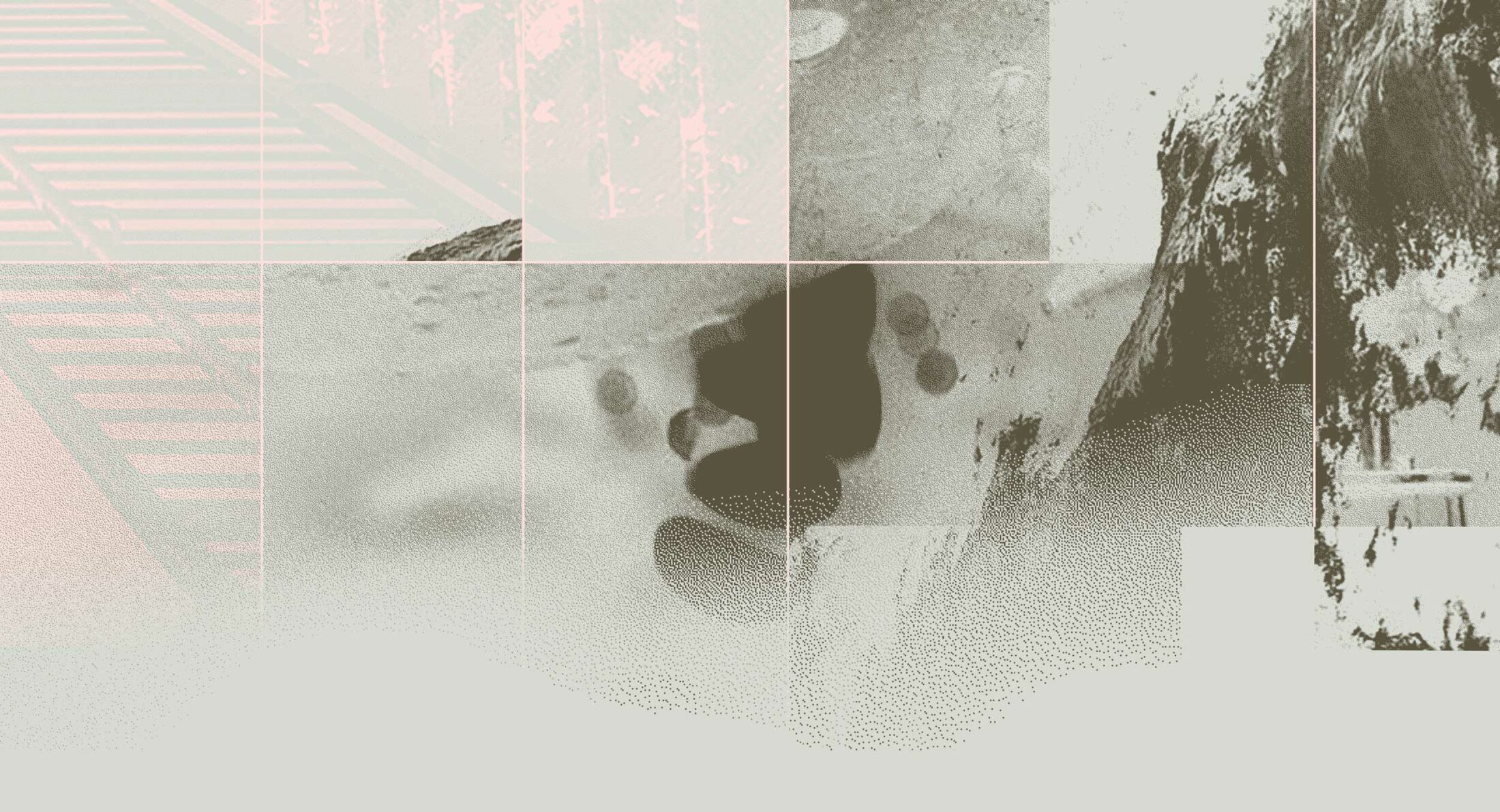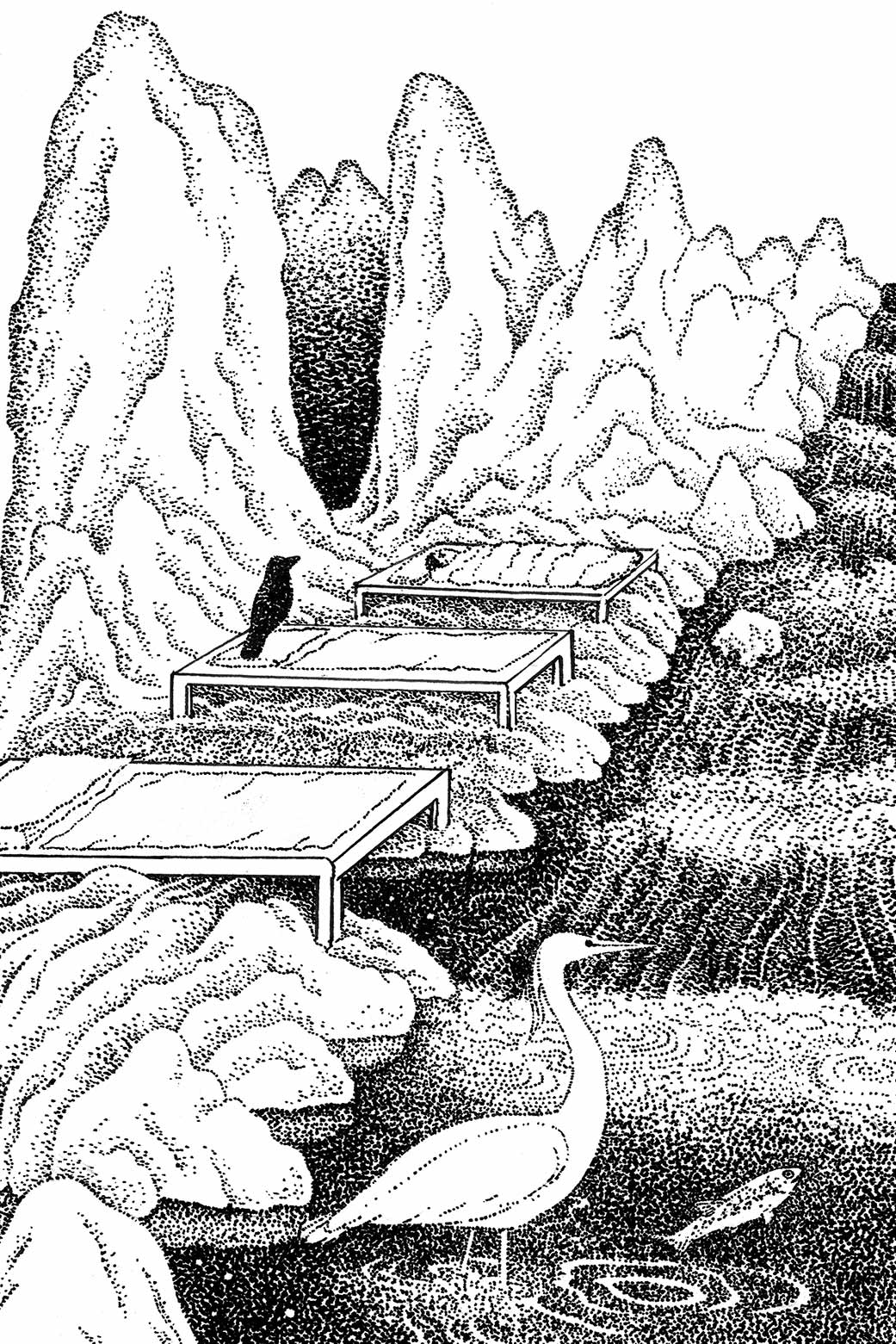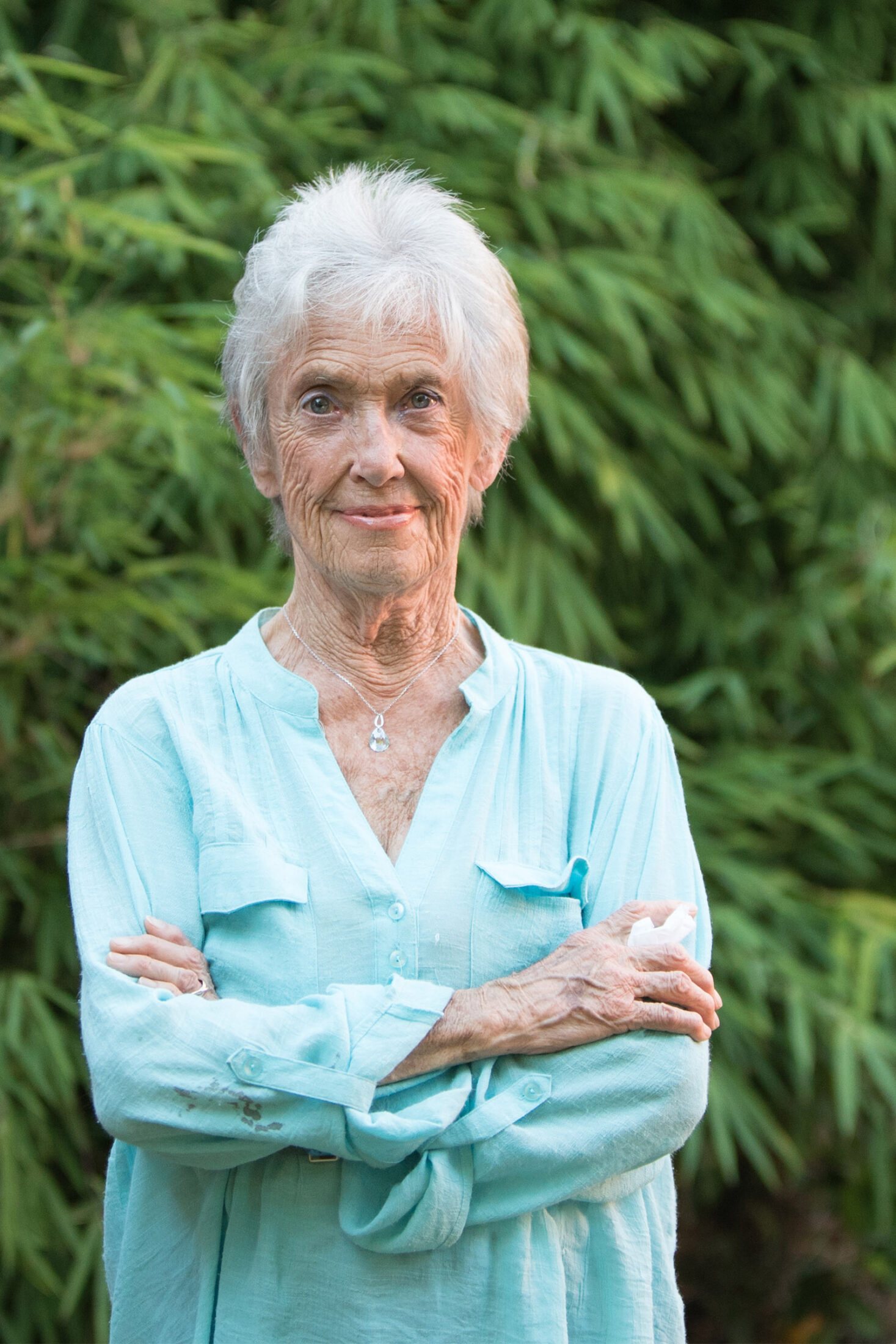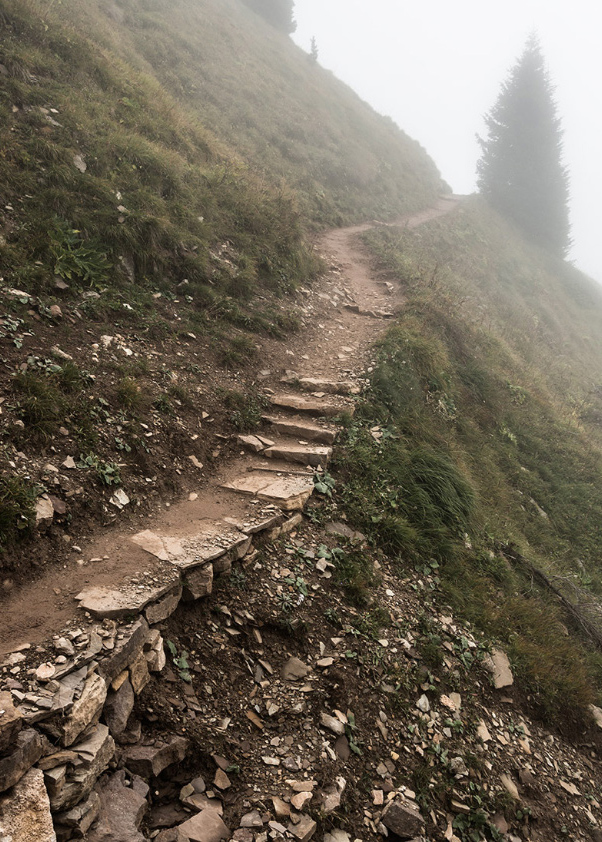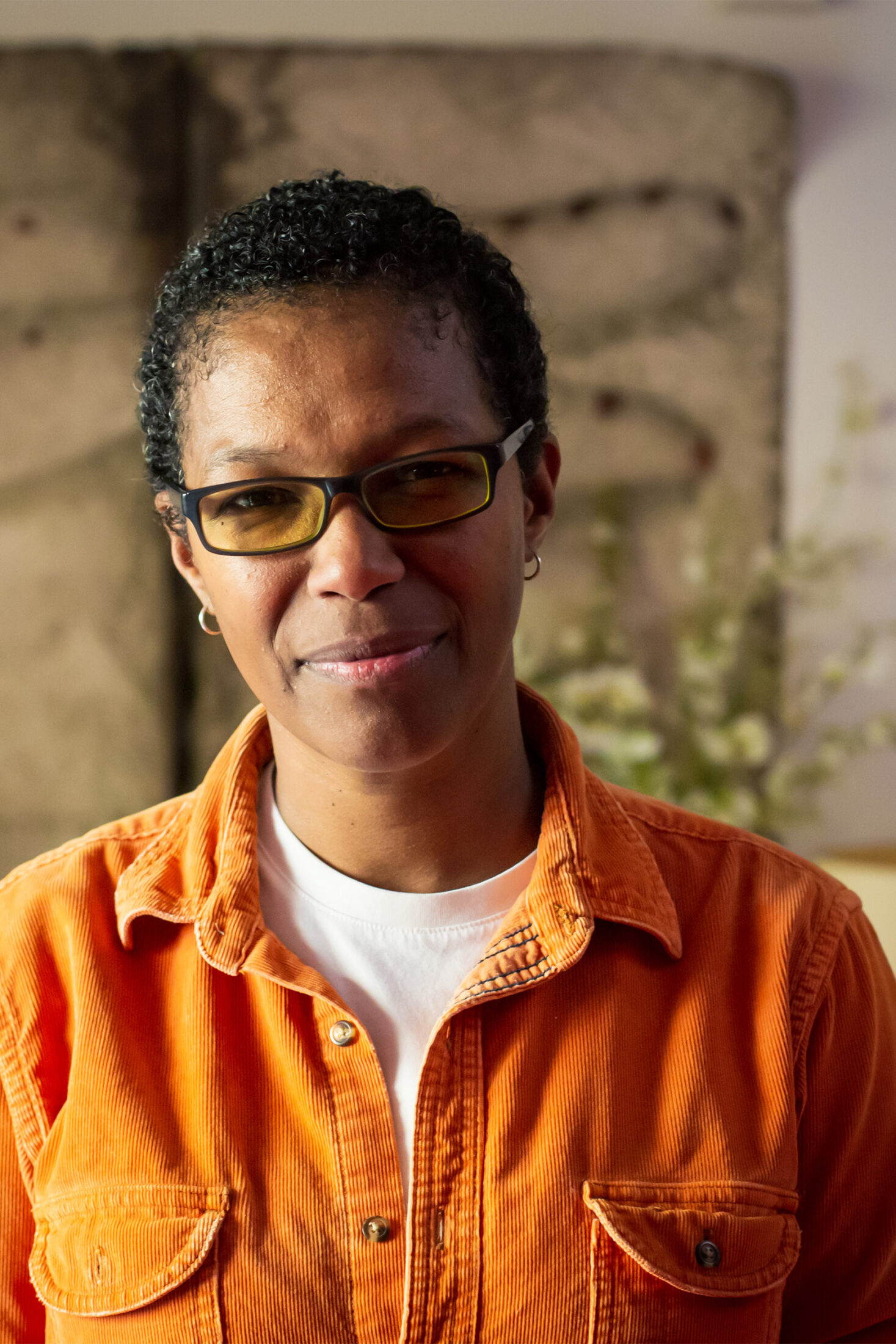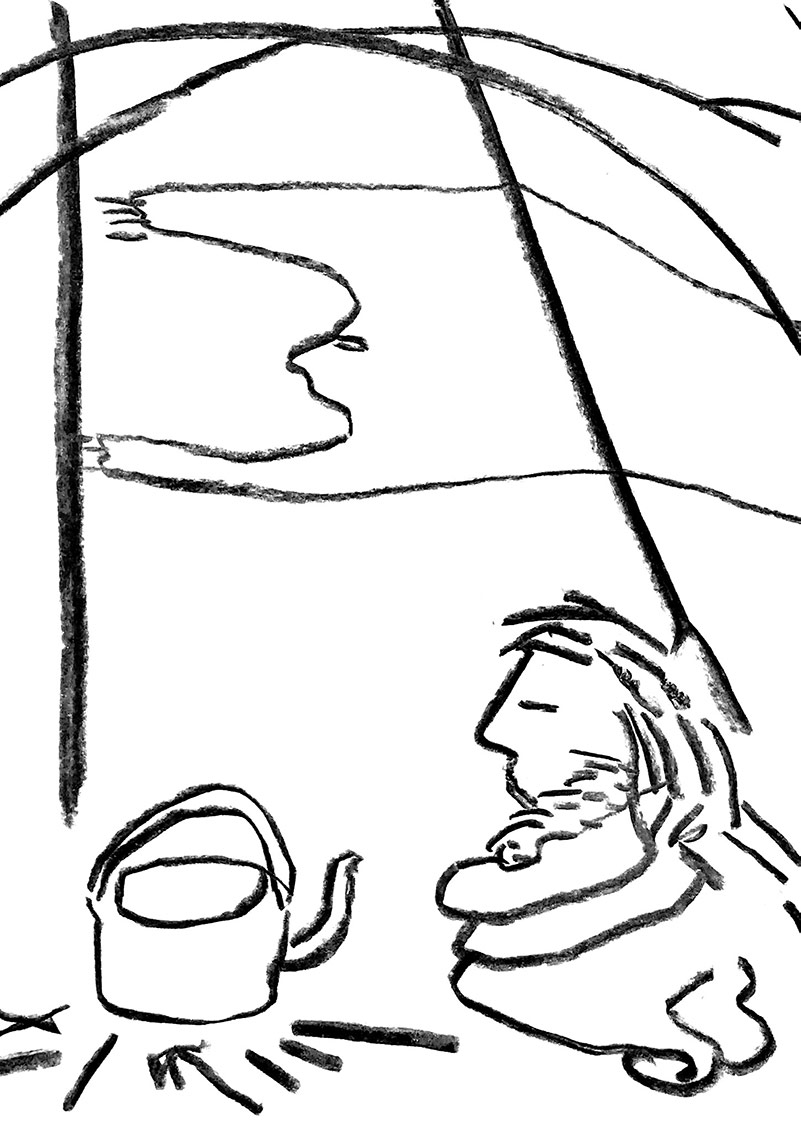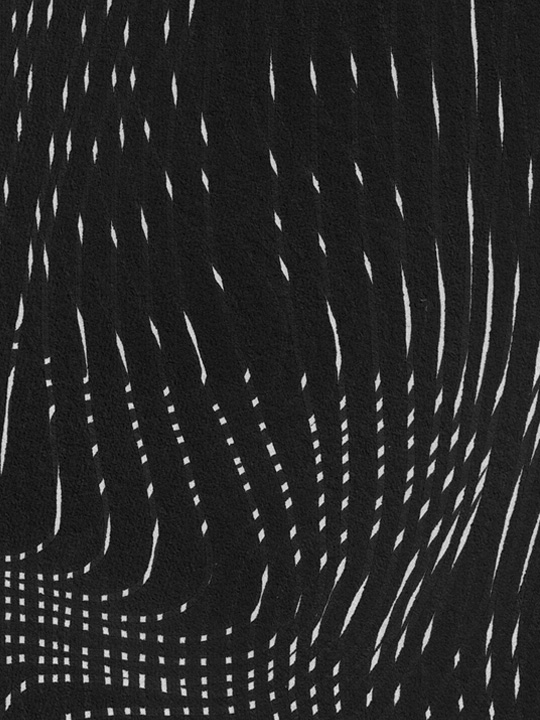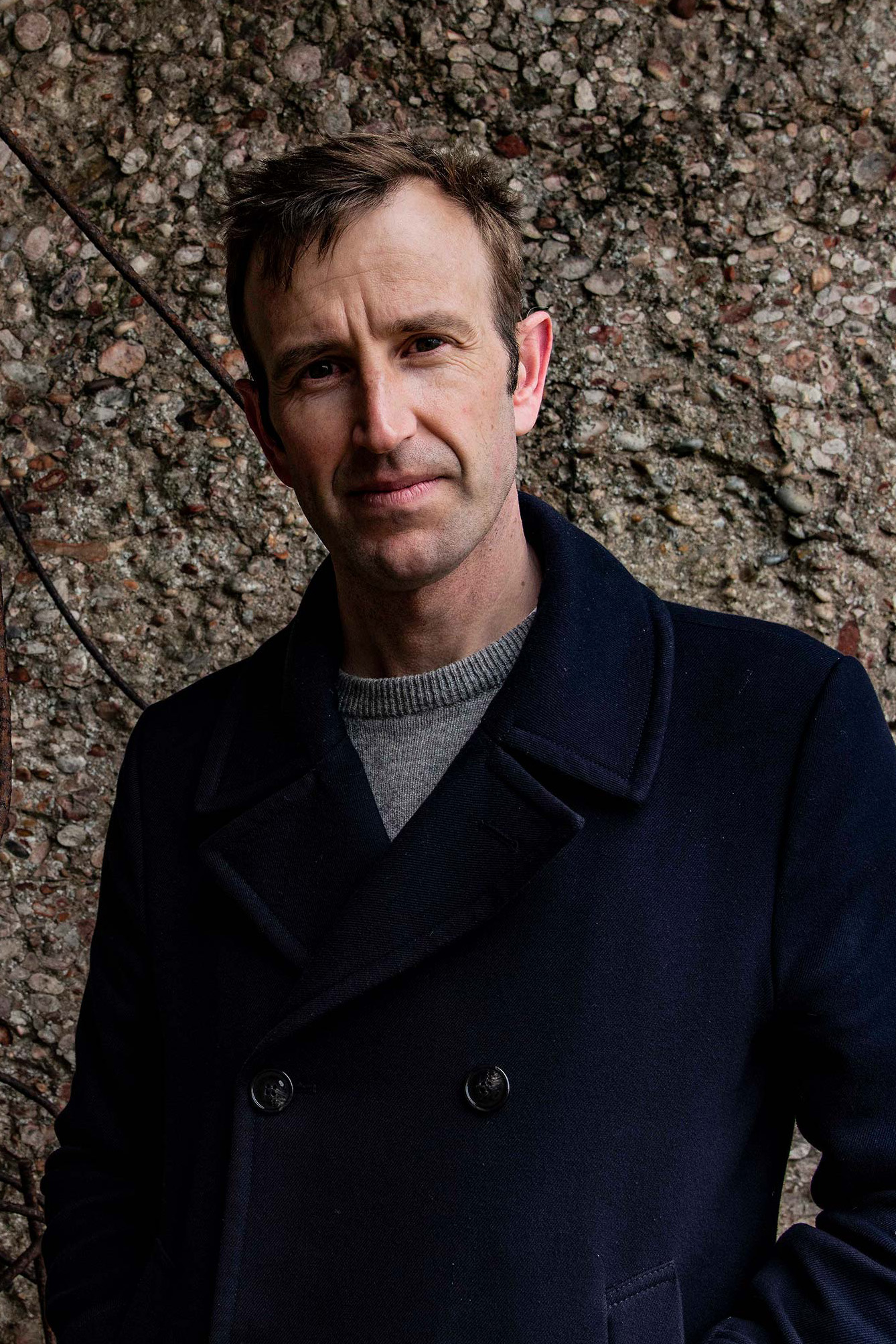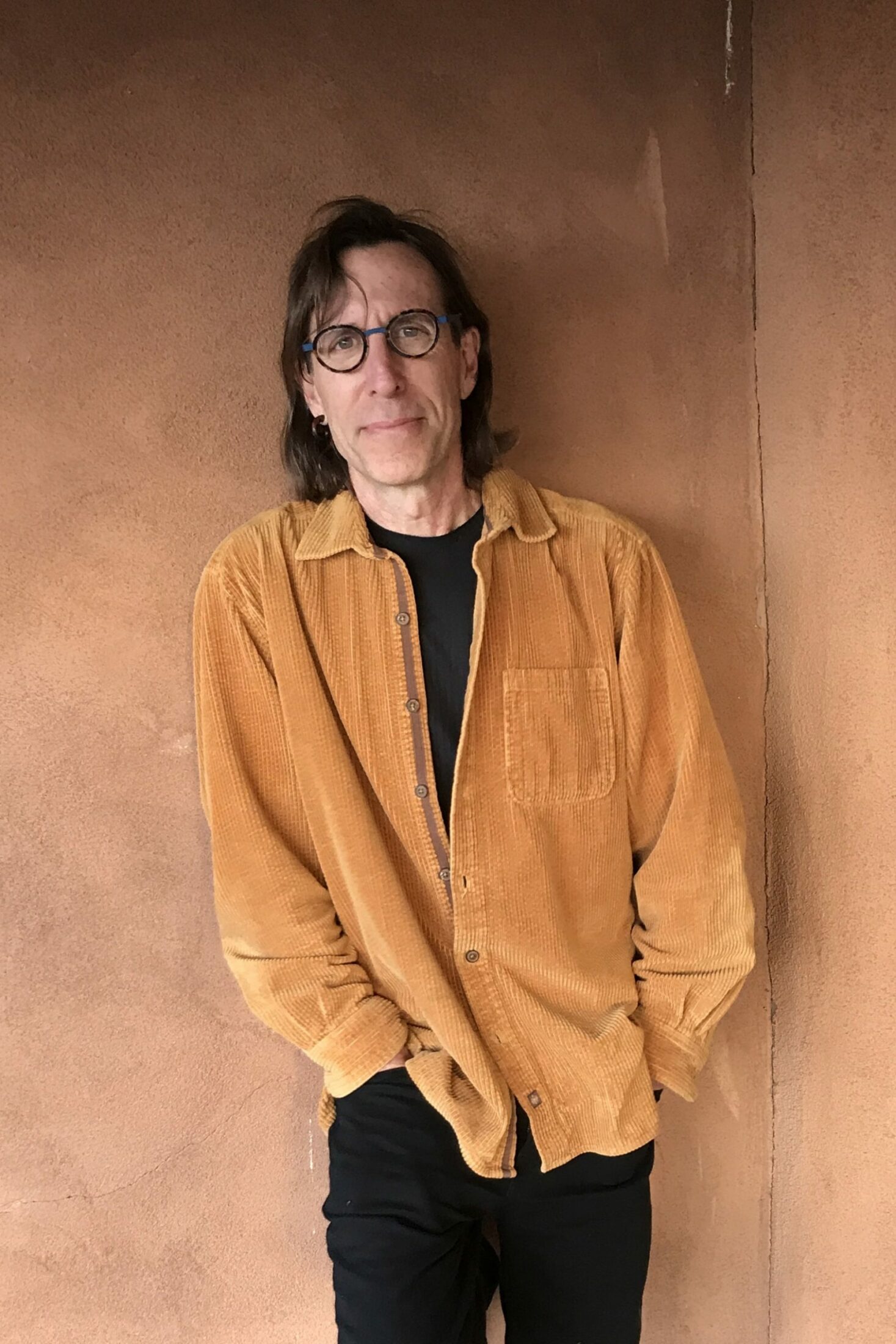
The Ecology of Perception
David Abram is a cultural ecologist, geophilosopher, and the founder and creative director of the Alliance for Wild Ethics (AWE). His books include Becoming Animal: An Earthly Cosmology and The Spell of the Sensuous: Perception and Language in a More-than-Human World. David recently served as the Senior Fellow in Ecology and Natural Philosophy at Harvard Divinity School.
Emmanuel Vaughan-Lee is an author, Emmy- and Peabody Award–nominated filmmaker, and a Sufi teacher. He has directed more than twenty documentary films, including Taste of the Land, The Last Ice Age, Aloha Āina, The Nightingale’s Song, Earthrise, Sanctuaries of Silence, and Elemental, among others. His films have been screened at New York Film Festival, Tribeca Film Festival, SXSW, and Hot Docs, exhibited at the Smithsonian Museum and London’s Barbican, and featured on PBS POV, National Geographic, The New Yorker, and The New York Times Op-Docs. His first book, Remembering Earth: A Spiritual Ecology, is forthcoming from Shambhala in summer 2026. He is the founder, podcast host, and executive editor of Emergence Magazine.
In this interview, cultural ecologist and philosopher David Abram discusses the animism, power, and potency of the living world. In our current moment of ecological and societal instability he calls on us to remember our inherent participation in the collective, embodied flesh of the Earth.
Transcript
Emergence MagazineDavid, a lot of your work talks about perception, sensory perception, ecology of perception, and I wonder if you could start by talking to us a little bit about perception and how that is connected to your work.
David AbramYeah. Well, I think as a cultural ecologist, what I’m primarily known for is research, investigations, into the ecology of perception or the ecology of sensory experience; that is, the way the activity of our eyes, of our ears, of our tongue, our nostrils, functions to bind our separate nervous systems into the encompassing ecosystem, as though our animal senses actually work almost like a kind of glue binding our individual neural system into the wider ecology, the wider ecosystem. But I’m also convinced that there are ways of speaking that many of us have inherited from this curious culture into which we were born, ways of speaking that work to stifle or frustrate the instinctive rapport between our animal senses and the animate earth around us. I’m just as convinced that there are other ways of wielding our words that can encourage and enhance that spontaneous reciprocity between our bodily senses and the earthly sensuous.
EMAnd before you were a cultural ecologist and writing about sensory perception and the world between the animate and the inanimate, you were working as a sleight-of-hand magician. I’m really curious to hear the origins of that.
DAI suppose I just always had a propensity and a fascination for the mysterious, for a kind of dark wonder. I’d always been fascinated with the night and with stargazing. And many things that my friends seemed to take for granted as being deeply ordinary, I found astonishingly weird—like the night sky or even the day sky and the intense blue, that azure color that ripples through my body when I gaze up on a clear day, wondering, why would that color be so intense to us if we’ve evolved underneath it for so many million years? You would’ve thought it’d become a kind of washed out, neutral color to us, a kind of gray. But it’s not neutral at all. It’s so intense and vivid and brings so many cascades of sensation and feeling and emotion: all of these puzzlements in regard to the ordinary, plain world that surrounds us.
When a magic shop opened in the next town—when I was about fifteen, on Long Island, where I was growing up—I stepped into that shop and was kind of dazzled by all of these colored boxes and gizmos, and I associated this sense of magic and the creation of magic with the possibility of invoking this kind of wonder, not just for myself but for my friends, for others around me. And I took up the practice of magic, and I became quite adept at the craft of sleight of hand and put myself through college working as a slight-of-hand magician in clubs and restaurants throughout New England. After two years of college I took a year off and traveled, just as a street magician, through Europe and the Middle East; then returned to college, finished my undergraduate degree, and took off traveling as an itinerant magician through Sri Lanka, through Indonesia, through Nepal, looking to meet the traditional Indigenous magicians or magic practitioners who apply their craft in various village regions. My focus at first was in the uses of magic in medicine, in folk medicine and curing. And I was tracking on this sense that magic, that sleight of hand itself, could be used as a kind of shock therapy, working through the senses to unexpectedly knock a person’s organism out of its endlessly reiterated habitual flow or pattern of energetic experience.
But as I was traveling there—first in Sri Lanka, then in Indonesia—I was looking to meet some of these individuals there—in Indonesia, they’re called dukuns; in Nepal they were called jhankris—these medicine people, or magicians, who were the doctors, one could say, for the villages in their vicinity and sometimes for those at vast distances from them. If they were well-known practitioners, people would travel for days on foot, sometimes carrying an ailing family member.
As I got close to some of these practitioners and was invited into their homes, and even asked to trade secrets with them, I became more and more fascinated by their relation to the wider earth in their locality; that is, it became apparent that these magicians first and foremost functioned as intermediaries between the human community and the more-than-human community of beings, within which the human village was embedded. And by more-than-human community, I don’t mean anything supernatural. I just mean the other animals who walk and crawl or migrate through this terrain, but also the flapping, flying, and screeching folks who squawk down at us as they soar overhead. They were all assumed to be just as alive, just as awake, as we two-leggeds were. Even whole forests were assumed to be sentient and have their own intelligence.
This kind of experience, this sensibility—anthropologists at the end of the 1800s and the early 1900s gave the term “animism” to this mode of experience, which assumes that everything is alive, that everything is awake. Well, it turned out that the magicians, as I was coming to know them better, were the intermediaries, balancing the relations between the human community and this wider community of powers; taking care that the human gang was never taking more from the land than it returned to the land, whether through prayers, propitiations and offerings, or all sorts of other practices that I witnessed these dukuns and jhankris engaging in from morning till night. And it became clear that their ability to heal or cure was a kind of by-product of this more central craft of balancing the relation with the living land.
EMAnd how did this experience or realization affect your experience of, and relationship to, perception, both as a magician and as somebody who also just had his world expanded?
DAWell, hugely, to make a long story short. I came back to North America and found that I could not take off the ways of seeing, the ways of sensing, that had opened in me as a result of living with these characters, that I had taken on ways of speaking in trying to engage their languages—but ways of speaking that allowed everything its own life. Each object, even the stones, even the walls of a simple cottage—I had taken to allowing these as living animate agencies or powers or subjectivities in their own right. And I got back to North America and found I couldn’t shake off this way of seeing, so much so that I began to become convinced that this way of seeing is our most ordinary, normal, human, way of encountering our world; that in the absence of intervening technologies, our animal senses spontaneously animate the sensuous surroundings. We speak of things “catching our gaze,” “calling our attention,” “grabbing our focus,” and those are all quite precise ways of speaking, because as we’re wandering the world, things solicit our attention, draw us into dialog, a kind of conversation without words. A fallen leaf on the ground calls my attention, and so I slow down to stop and gaze at it. And so, in my experience, this leaf is not dead, though it’s been lying on the ground for days. It has its own agency. It has its own power, its potency. And so, it is with everything we experience. This has become a very basic insight to me: that our bodily senses, left to their own devices, are inherently animistic; that sensory perception is participatory; that the senses are gregarious organs that actively participate in the surrounding terrain; and that when we speak of the world around us as a set of objects or objective mechanical processes, we actually frustrate our senses and force our awareness to withdraw from our skin and from our eyes and our ears, and we climb up into our heads and live in a set of verbal abstractions—because the human animal cannot help but experience the world as animate and alive through and through.
EMYou’ve also talked a lot about how traditional oral cultures embodied that relationship you just described, that kinship with all beings. And the way of speaking that you experienced when you traveled and spent time with traditional magicians and healers in the east was part of that. But also, and I think you spoke about this and talked about this in The Spell of the Sensuous and some of your other work, about how the advent of the alphabet—and what you describe as such an ancient technology that we’ve forgotten that it’s a technology in its own right—upended that relationship or began to. I wonder if you could speak to that a bit.
DAWell, having returned to North America and gotten so bent out of shape by the culture shock of my return, I got to wondering, how could we ever have lost this basic animistic or participatory experience of a world all alive, awake, and aware? And it became apparent that whenever we were speaking of Indigenous traditions—Indigenous place-based peoples and cultures that live in some kind of rich, relatively reciprocal relation to the surrounding landscapes that they inhabit—that we were almost always speaking of oral cultures, traditionally oral cultures; that is, cultures that have developed and thrived century after century, sometimes millennium after millennium, in the absence of any highly-formalized writing system.
And so I began to wonder what it is that writing and the written word does to our senses and to our sensory experience of the earth around us, and what is it that writing and literacy does to our experience of language and linguistic meaning. For one thing, it became apparent that different writing systems affect our senses in very different ways. In the scripts of more pictorially derived writing systems, like the ideographic script of China or the hieroglyphics of ancient Egypt or of the Mayan peoples, many of the written characters are sort of stylized pictures drawn from sunrise, sunset—humans and human implements, sure, but the human artifacts are interspersed with animal shapes, rain, storm cloud. And so, the reader is continually reminded of language’s link to the wider, more-than-human earth.
Another thing that goes with that sort of baseline, ordinary human experience of the world is a sense not just that everything is alive, but that everything speaks, that all things have their expressive potency, although most things don’t speak in words. Everything is expressive. The colors shimmering from a blossom speak to me. They affect my mood. Of course, birdsong is a kind of speech, cricket rhythms, but even the splashing speech of waves on the rocks or the wind in the willows itself is a kind of voice that rushes and hushes through the chattering leaves.
With writing, a sort of new distance opens between our language and the surrounding language of the land. But in idiographic or pictographic writing systems, the letters still function almost like windows opening onto that wider-than-human field of voices. With an alphabet, with a phonetic system of writing, each letter no longer refers to anything out in the sensuous terrain that it images. Rather, the letter points me back toward my own face, and I see the letter “B” and I go “buh.” I see the letter “C” and I go “kuh”; that is, each letter now refers to a sound made by the human voice. As we take up phonetic literacy, as we learn to read and write with an alphabet, human language begins to close in on itself. Only as the alphabet comes into contact with a previously oral culture, usually carried by Christian missionaries teaching the Good Book, only then does that culture get this odd idea that language is an exclusively human property, and the rest of the sensuous terrain begins to fall mute. It no longer seems to speak with a thousand voices. Rather, humans speak, and the land gradually comes to be felt as a kind of passive or mute backdrop against which human history unfolds.
EMYou’ve talked about how the alphabet and the many forms of technology that were built upon it are really a very potent form of magic—an opposite kind of magic to what you’re describing in the animate, sensuous, live world, where things are speaking to each other—but a very potent form of magic that kind of keeps us in a grip, as you said, looking only at ourselves, and diminishes our capacity for what you describe as “radical otherness.” I really love that term, “radical otherness.” So, I wonder if you could speak to that magic that the human-created technology embodies, and radical otherness.
DAWell, one of the most common misreadings of my work and of my research has been to say, “Oh, Abram is suggesting that writing is bad and that the alphabet is the cause of all our problems.” This is a terrible misreading, because I’m a writer and I love the written word and I love to read, and I’m deeply given to the exquisite power of the written word to open wonders. I’m not at all claiming—and this is quite important—I’m not at all suggesting that writing is bad, but, rather, that writing is magic, and that the alphabet is a very potent form of magic, a very concentrated form of animism. For our Indigenous ancestors, one could be wandering through the terrain and have one’s attention snagged by a boulder with patches of crinkly black and red lichen spreading on their surface, and you would focus your eyes on a patch of lichen and abruptly hear the rock speaking to you. Well, that’s not so different from us waking up in the morning, walking to the kitchen, opening up the paper, and focusing our eyes on a few bits of ink on the page, and suddenly we hear voices and we see visions of events happening in the White House or in Iraq. We focus our eyes on these ostensibly inanimate bits of ink on the page and we hear voices, conversations unfolding between people on the far side of the world. This is animism, folks. It’s an intensely concentrated form of animism, but it’s animism, nonetheless; as outrageous as a talking stone. We just do it with our own scratches and scripts. Our oral ancestors were doing the same thing with bent twigs, tree forms, leaves, cloud shapes, animal tracks — everything in the surrounding terrain was speaking to us. But this new, very concentrated form of animism only speaks with a human voice, and the words that we experience as we read are human words.
So, again, the alphabet closes us into a space of exclusively human meaning and verbiage, while the wider, more-than-human terrain doesn’t seem to speak at all. And in that sense, this new, very concentrated form of magic that we call the alphabet makes possible the forgetting of the lives and perspectives of all the other animals, of the plants, of the mountains and rivers. It doesn’t force us to forget these other beings, but it makes possible that we begin to neglect them. So, I’m not saying writing is bad. I’m saying writing is a magic, and only when we recognize it as such can we use it responsibly. If we don’t recognize writing as a very potent magic—that is, as something that has much more than rational effects upon our experience—if we don’t recognize it as a magic, we tend to fall under its spell. The word “spell” has that double meaning, both to cast a magic within the world and also simply to arrange the letters. But those two meanings were once one and the same, because to learn to read with this new magic was to cast a kind of spell upon our own senses.
EMYou spoke about a forgetfulness that can be a direct result of this form of magic that encloses us upon ourselves, but you have also talked a lot about a forgetfulness connected to some of the most primal elemental forces of creation, like breath, and that even our understanding of the root of the words that describe breath have been forgotten. And, interestingly, there’s a connection there between the forgetfulness of breath and the power of breath to desacralize the living world.
DAOh, yes, hugely. But there, again, it’s very helpful to notice this simple difference between a literate culture and an oral culture. For deeply, traditionally, oral cultures, human language is what I am doing now. It’s speech. It is spoken speech, and speech is recognized the world over to be nothing other than shaped breath; that is, we only speak by inhaling some of this invisible medium of air, [breathes in] taking it into our lungs, and then breathing it out. And as we breathe out, we shape it with our tongue and our lips and our palate, and we let it vibrate a couple folds in our throat, and we sound our words out into the world. I don’t know if folks have noticed this, but we only speak on the out-breath. We never speak as we’re breathing in, because [breathes in] it doesn’t sound very good. It’s very hard to speak [breathes in] on the in-breath. We only speak as we breathe out. And so it is recognized by oral traditions the world over that speech is shaped breath and that it is the breath that is the air that is carrying my words to your ears, or your words to my ears; that is, the air, this invisible mystery, the medium in which we are bodily immersed, is the very medium of meaning. It’s where all meaning lives. Even the voices of our ancestors, once they’ve passed on, still linger right here in the air. It’s the very place of the spirits. It is this most magical element, because we see that we cannot act, we cannot speak, or even think without continually imbibing this invisible substance. And so, the air is like the mystery of mysteries for a deeply oral culture.
It’s not by chance, then, that the words for spirit, the word for psyche, the words for the soul or anima—Our word “spirit” comes from this old Latin word, spiritus, which originally means a breath or a gust of wind. Our word “psyche” comes from this old Greek word, psuche. The verb was psychein, which meant to breathe or to blow like the wind. And the noun, psyche or psuche, was a gust of wind or a breath of air. The Latin word for the soul, “anima”—where does that come from? An older Greek term, animos, which meant wind. Even such a scientifically respectable word as “atmosphere” displays its origin in the source of the Sanskrit word atman, which means soul. But the origin of both words, atmos, meant the soul, which is the air, the air which is the soul. In fact, if you take the words for mind or spirit or soul in any language and trace them back to their oral origins, you’ll find at least one of those words names the air, the wind, or the breath as the very body of that mystery we call mind, soul, spirit.
EMIt’s interesting that now in the midst of a kind of breakdown, we’re faced with the realization that we are changing this mysterious substance of creation: you know, the air that we breathe. And there definitely seems like a direct correlation—I think you were suggesting it—between our distance from the sacredness that was present in our relationship with breath, with the air—in oral cultures, Indigenous cultures, and in spiritual traditions for millennia—with our kind of comfort in treating the air as a dumpsite.
DAYes, exactly, exactly. Of course, in showing these—or reminding us of these—deep ancestral links between spirit and wind, I’m not in any way trying to reduce the mystery of spirit to the wind, but rather to expand our sense of the wind and the breath and the air as something irreducibly weird and richly mysterious and deeply magical and filled with meaning: this meaning-filled plenum in which we find ourselves bodily immersed, from which we drink steadily to fire our hearts and our awareness. It does seem to me that one very interesting way of looking at climate change is to recognize that climate change is the simple consequence of forgetting the holiness of the invisible medium and beginning to treat it as just empty space. Because it’s invisible, we have in the modern context come to assume that there’s nothing very meaningful there. We can’t see it, so it’s just a void. And so, it’s a perfect place to toss everything we want to avoid. All the toxic by-products of our industries—we can just toss them into the invisible air. And whatever dissipates as smoke and dissolves into the invisible—we think “out of sight, out of mind.” We’ve been treating the air as a convenient dumpsite or an open sewer for our industrial wastes. Climate change is the simple consequence of forgetting the holiness of this mysterium in which we’re bodily immersed.
EMA couple years ago, you wrote a piece for Emergence called “Magic and the Machine,” where you made the connection between the alphabet and more modern forms of technology, specifically GPS, and how this has in the last decade—when it’s become ubiquitous—fundamentally changed how we relate to our surroundings and altered, as you described, our capacity to orient in the world. So, I wonder if you could talk about the importance of orienting ourselves and what is lost when it’s replaced by this technology.
DAHmm. Hmm. That’s a great question. We have almost voluntarily been giving up or forfeiting so many of our most basic animal instinctive bonds with the earth. And perhaps the most basic of these is our ability to orient in space, something we’re all born with that enables us to know just which way we’re facing and to feel in the distance where our home is and to be able to make our way there. The body is always in a subtle interaction and engagement with the large vast body of the earth itself, and our orienting ability is the signature of that. When we begin to use smartphones, and then unthinkingly avail ourselves of the GPS that just happens to come with our smartphones, and we start using that to orient—first, when we’re driving in a strange city, but then it makes things so simple that we start using it even in our hometown when we’re not driving but just wanting to know where we are when we’re out wandering, or even when we’re off in the woods, because we now take our smartphones in our pockets because they have these other great gizmos like cameras and such with them that we kind of want to have nearby, and then why not use the GPS? But how sad this is, that we suddenly lose the very possibility of being lost and the intense heightening of our bodily senses that comes with being lost. GPS short circuits that instinctive rapport between the human body and the sensuous terrain, and by putting it out of play, I think we lose so much of what is most basic to being not just a human but to being one of the animals. It’s something that is largely unconscious in us, but when we’re no longer relying upon it, it goes deeply dormant; and I think that’s a great sadness.
EMIn the last few months there’s been a shift for all of us as we adjust to this pandemic. And in the first few months, when so many of us were under lockdown, we were limited in connecting with other humans. And you wrote an op-ed for the magazine about this and the opportunities that were also present at this time: as you described, “While this plague enforces a temporary distance from other humans, there is no reason not to lean in close to other beings”; that in some ways there is an opportunity for reorientation that we didn’t necessarily have before because we were moving around so fast. Our lives are so busy. We’re engaging with everything that this life is, but we miss out on slowing down and connecting, and there’s an opportunity there. I wonder if you could speak a bit to that and to this opportunity at this present moment.
DAWell, I think one of the great gifts of the pandemic—not to minimize any of the very painful losses that it brings, particularly of lives that are very close to many of us—is that it’s forcing us very viscerally to recognize the deep reality of the physical world, the biological world, the world our bodies have always been a part of. In recent decades, we’ve gotten so caught up in the magic of our machines, and the digital screens, and their dazzle upon us, that it’s led many of us to feel like we are somehow divesting ourselves of our bodies and taking on a more subtle virtual existence, spending so much time in virtual spaces and virtual worlds. And yet the pandemic is teaching us, is forcing us to notice, that however much time we spend in these virtual spaces, we wouldn’t be spending any time anywhere if we were not first on the ground gulping air and eating food, and that our life is utterly entangled with the life of the other beings around us; other humans, yes, but other plants, hugely. I think it’s returning us to the immediacy of the intimate, subtle spell of the local earth.
It takes time and it takes slowing down, and the kind of slowing down that the pandemic has forced upon us, to become aware of one’s breath, for instance, and to notice that this invisible elixir we breathe is actually offered to us by all the green and rooted plants growing around our home; that there’d be no oxygen in the air for us to draw into our lungs if it were not being exhaled by all these trees and the forests around our town. It’s a chance to actually apprentice ourselves to the weirdness of our particular locale, to learn the birdsongs that are most common in our vicinity or to begin to commit to memory the patterns in the bark of the different trees and learn to identify those different trees in our locale, or perhaps the different cloud shapes that sort of thicken and then dissolve within the blue sky of our bioregion.
We can take rich advantage of this time to become more deeply of place, more deeply of the local earth; because even the empathy that we so richly feel in this time, and that I think is burgeoning from many of our hearts and spreading throughout our bodies—the empathy we’re feeling for other persons who are struggling to draw breath in the local hospital, or even around the curve of the earth in other countries, and the empathy we’re also feeling for so many brothers and sisters afflicted by the many-decades-long scourge of police brutality, the empathy we feel even toward undocumented immigrants struggling in our own country as they’re squeezed tight in detention centers—I think that empathic solidarity, that deep, visceral solidarity we feel with others of our own kind, if we notice closely all these other human lives going on in other places around the world, we’ll notice that this human solidarity has the shape of a sphere. Because it is the spherical Earth, this vast, breathing metabolism we call Earth, that enables us to feel viscerally, to empathize with others, whether they be humans or elder humpback whales struggling with the plastics in our oceans. I’ve heard many people speaking of the unity that this pandemic brings, the way that we begin to notice we share a common body, a common flesh, all of us humans, as if there’s a vast human species body that we’re all a part of. But I wonder about that. It seems to me more that our real collective flesh is that of the Earth itself, this immense spherical metabolism in which we’re all embedded and embodied.
EMYou also said that perhaps the pandemic is giving us a much needed—and I’m quoting you here—“slap-in-the-face reality check, waking us two-leggeds up with the simple truth that we are not at all in control, have never really been in control. What hubris to imagine we could do whatever we want with this exquisitely interwoven wonder of a world.” Do you have a renewed sense of hope? I know this is a big question, perhaps one we can end our conversation with—but a renewed sense of hope in light of this slap in the face that we’ve been dealt?
DAI suppose in some ways hope is growing in me, because it’s been amazing news that the gears of this mega-machine could actually grind to a halt and that voluntarily we could pause this massive winner-take-all economy when we felt the eminent danger of this plague pouring through our communities and our cultures. That’s been a terrific realization, because the news for so many years in these recent decades that has shuddered through my organism—and I can’t help but feel all of my sisters and brothers also tacitly and sometimes unconsciously imbibing from the newspaper—the sense, no matter how intense the information regarding climate change, is that we’re unwilling to change; that this society, these vast economies, refuse to halt themselves or even imagine that they can stop in the face of such losses.
And so, for me, this has been a wonderful bit of news, that, no, it can stop, and we can halt, and we can change. At least it seems to me that now there’s the possibility calling of not just a pause but a real cultural metamorphosis beginning to burgeon, and I think we’re seeing this as well in the growing huge movement against the structural violence in our society and against the many forms of racism that are just built right into the styles and habits of our culture.
So I think it’s a time filled with rich, rich possibility but also fraught with tremendous danger, because we know well from the last century that when things get tough, when economies falter, the most facile, easy impulse in the human animal is to look for somebody to blame and then try and inflict as much pain as possible upon those others. And I think the biggest puzzle, the biggest koan of our era, is how to short circuit that scapegoating impulse, because we’re living at a moment when things are going to be getting worse and becoming more difficult, and then becoming even more difficult.
It seems to me that falling in love outward with the more-than-human earth is the deepest medicine for this, because if there’s anything that the local earth wherever you live teaches, it’s the need for diversity, the need for the whole, weird multiplicity of shapes of life and styles of sentience—all of them shaped so differently from you and from one another—to be interacting with one another in order for the land to be strong, to be healthy, to be resilient. And so as we open our hearts and open our senses to the wider sensuous earth, I think we imbibe this deep teaching of diversity, of the need for an irreducible pluralism, and for celebrating otherness and radical alterity, radical otherness in our world, not looking to just shelter ourselves among those who think just like us or speak just like us or look just like us, but taking deep, new pleasure in otherness and strangeness. That’s the deep magic that I think is leaking back into human society today and into the more-than-human community as we humans fall in love outward.
EMHmm. Well, thank you, David, for joining us today. It’s been a real pleasure speaking with you about many facets of your work and where we are today at this time of great uncertainty yet great potency for change.
DAGreat. Thank you so much, Emmanuel.
